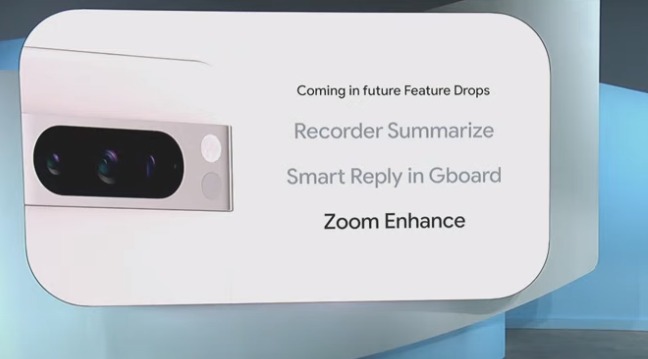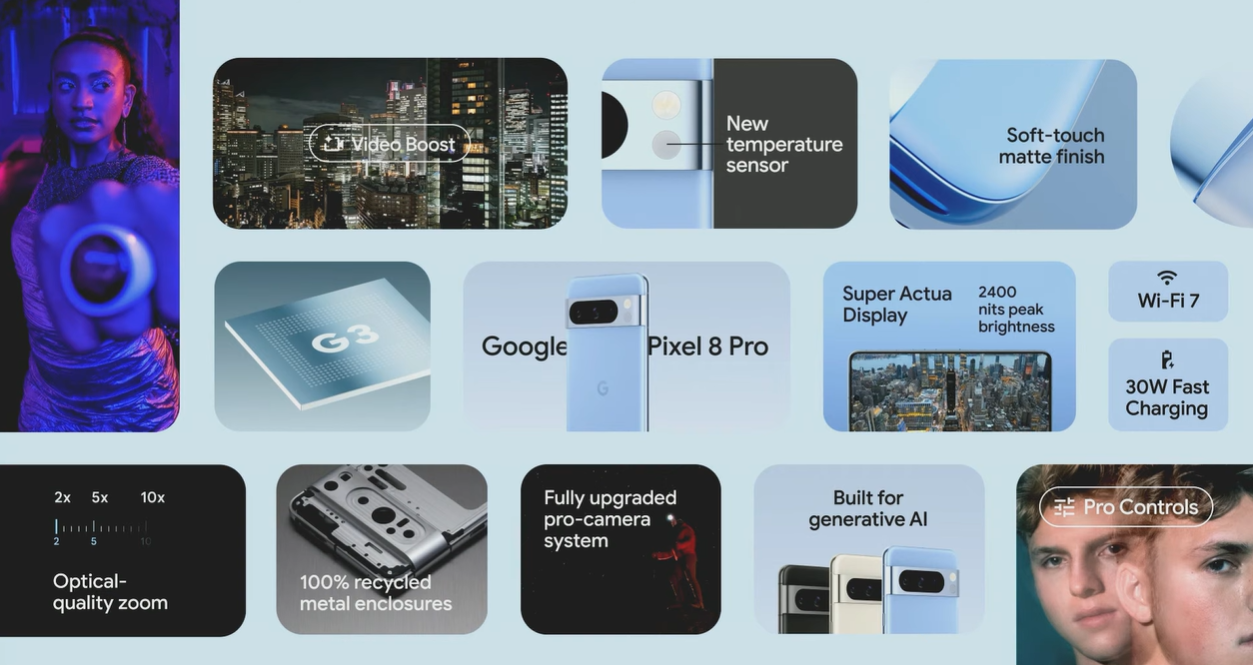Google launched its Pixel 8 Pro device and one of the main pitches beyond the usual software, camera and processor upgrades is that the device can run the company's foundational generative AI models locally.
Yes, your phone will be a little generative AI machine.
If you've been following any of the recent hardware launches the next battle is on device model processing. Amazon's Alexa event also had a heavy LLM spin, Apple touched on running AI and machine learning models locally and PC makers are betting (more like praying) that there will be an upgrade cycle due to model training. Microsoft's Surface event was really about a barrage of Microsoft 365 Copilot launches. Bottom line: Hardware launches are increasingly about the models, algorithms and generative AI behind the services.
Google's event to launch the Pixel 8 and Pixel 8 Pro carried the foundational model with hardware theme farther. First, Google's latest pixel phones will feature the Google Tensor G3, a new processor that will enable on-device speech recognition, an update to Magic Eraser to remove larger distractions with on-device models and provide summaries to recordings.
Google Assistant with Bard will also be available on the Pixel 8 line. In practice, you can take a picture of a sign at the beginning of a trail and ask for hiking recommendations. Assistant for Bard is rolling out to select testers.

Rick Osterloh, Google's Senior Vice President of the company's Devices and Services unit, said on-device generative AI capabilities mean no latency and better experiences and features. He added that the device unit worked closely with Google Research to distill foundational models, so they run efficiently on Pixel Pro 8.
"Google's generative AI models can run right on the phones you have throughout the day," said Osterloh. "We engineered Pixel 8 Pro to run Google's foundational models right on device. This leads to directly improved experiences."
To that end, Google said it will support 7 years of software updates for Pixel 8 and Pixel 8 Pro.



